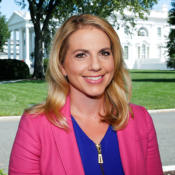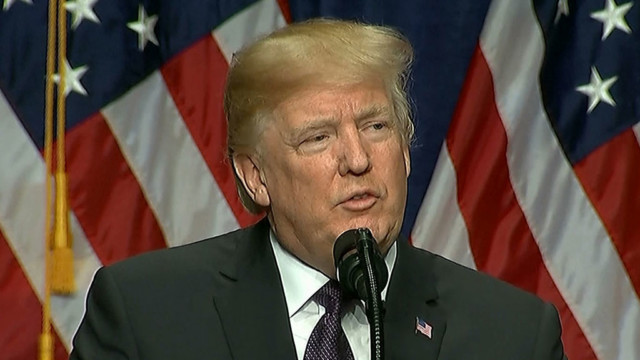A new national security strategy was unveiled by U.S. President Donald Trump on Monday.
It outlined his vision of how the “America First” agenda fits into foreign policy goals.
CGTN’s White House correspondent Jessica Stone has the highlights.
U.S. President Donald unveiling his ‘America First’ foreign policy, Monday, framing it as a new era of competition.
“We accept that vigorous military, economic and political contests are now playing out all around the world,” Trump said.
Trump’s national security strategy labels Russia and China so-called “revisionist powers,” seeking to challenge American influence, values and wealth.
The administration writes: “Russia aims to weaken U.S. influence in the world & divide us from our allies & partners.”
At the same time, Trump publicly cited Washington and Moscow’s recent intelligence cooperation that prevented a bomb plot in St. Petersburg.
The document also mentions the threat from Beijing more often than any other nation in the world.
Quote: “Competitors such as China steal U.S. intellectual property…China gathers and exploits data on an unrivaled scale.”
Beijing counters that its economic rise has benefited the world and created millions of American jobs.
“China has opened up a road of cooperation and win-win that brings benefit to the world while seeing to China’s own development. This has been widely recognized by the international community,” Foreign Ministry Spokesperson Hua Chunying said.
But, the Trump administration wants to increase trade enforcement, address trade imbalances and protect its research and development centers.
The document calls for tougher national security reviews of foreign direct investment, and even restricting VISA’s for foreign-born science, math and technology students.
“Economic vitality, growth and prosperity at home is absolutely necessary for American prosperity and influence abroad. Any nation that trades away its prosperity for security will end up losing both,” Trump said.
Trump’s national security strategy calls “Jihadist terrorist organizations” “the most dangerous terrorist threat to the Nation.”
But, he said U.S. allies “share responsibility” in the fight against terrorism-like the joint Saudi-U.S. Global Center for Combating Extremist Ideology.
Unlike the Obama administration, which labeled climate change an “urgent and growing threat to our national security,” the Trump White House says: “Much of the developing world will require fossil fuels,” adding that the U.S. will continue reducing its carbon footprint-not through more regulation, but by increased efficiencies and innovation.
FULL NATIONAL SECURITY STRATEGY HERE:
 CGTN America
CGTN America

